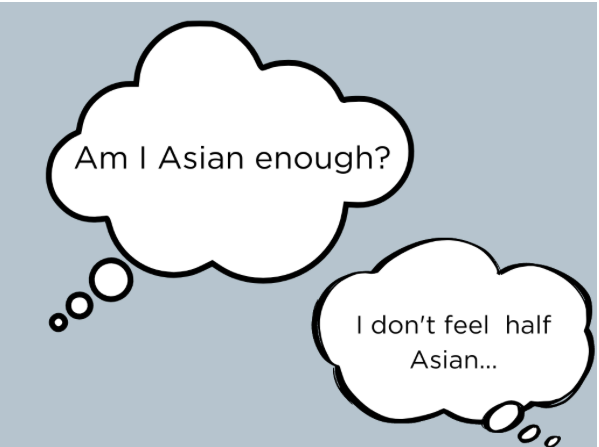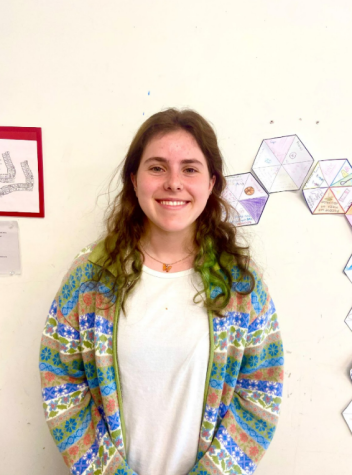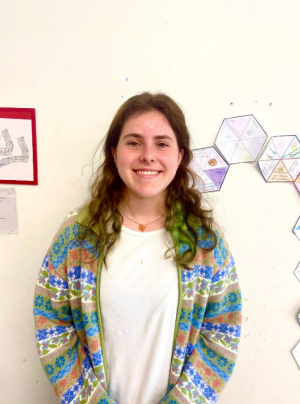Embracing biracial identity involves conversation, acceptance

Even though I am half Thai, I often feel like I don’t have a right to say I am as I am not “Asian enough.” I don’t speak Thai, I don’t know that much about the culture and I was born and raised in the U.S. These reasons make me feel as if I am an imposter when I say that I am biracial.
“What is your ethnicity?” a friend asks me as we exchange casual questions to get to know each other better.
My reply: “I’m half white, and half Asian.”
Right after I utter that one sentence, my throat goes dry, and it feels as if there is a weight pressing down on my tongue. Nothing I said was incorrect, and yet, it feels like I just told a lie.
While being born and raised in the U.S. has made me feel more connected to the white half of my racial identity, I don’t feel as connected to my Thai heritage- the Asian side of my racial identity. I know very little Thai language and am not well versed in Thai culture. Because of this, I have struggled throughout my life with my biracial identity, never feeling connected to both cultures equally. However, having conversations about my race has allowed me to come to terms with it while cultivating genuine interest in aspects of Thai culture.
There have been times when I have felt embarrassed because of my Thai side, worrying that it will make me stand out in a negative way. This was especially true when I was younger. I felt self-conscious about friends coming over and thought it was weird that my grandparents spoke a different language. I also worried that people would think it was strange to refer to certain foods by their Thai name.
At the same time, whenever I am with my Thai relatives or have gone to Thailand, I feel like an imposter. I sit and nod awkwardly whenever they try to speak Thai to me, feeling embarrassed that I have no clue what they are saying. If I can’t even speak the language, do I even have a right to say I am Thai- American?
This “racial imposter syndrome” is anything but a unique experience. Many multiracial people struggle with imposter syndrome related to their ethnic identity. According to Mental Health America, struggling to feel a sense of belonging “can make [multiracial individuals] question [their] experiences and sense of identity.”
My struggle to embrace my full identity is not new, and, in some respects, my mother had a similar experience. Though my mother was born in the United States and is a U.S. citizen, her parents were immigrants from Thailand. So, even though my mother has Thai heritage, she felt culturally more American, while at the same time feeling like an outsider to the “Thai side” of her identity.
When friends came over to her house, she would be embarrassed by the fact that her parents spoke a different language and that there were Buddhist statues in her home. At the same time, she didn’t find full acceptance in Thailand either. She never learned the Thai language fluently growing up, so, when she visited Thailand, no one there assumed she was Thai and called her “farang,”, which means “foreigner.”
It may take a while for me to fully accept my biracial identity, but thanks to conversations with my mother and internal revelations, I can confidently say I am on the right track.
— Lily Hultgren ’25
Recently, I spoke to my mother about these struggles. She helped me recognize that even though I feel like a stranger to Thai culture, it is still present in my everyday life. Whenever I take my shoes off when I enter the house or make sure to never put my feet by someone’s head, I am observing Thai practices.
Most importantly, she assured me that even though I know only a few Thai phrases, it doesn’t change the fact that I am still half Thai. This helped me to realize that there isn’t a single way to be “Thai” or “Asian.”. It is different for everyone.
Having these conversations really changed my perspective on my racial and ethnic identity. While I still occasionally feel like an imposter, I can take a step back and work on embracing all of the parts of my heritage. By doing so, I have only become more interested in learning about Thai culture.
It may take a while for me to fully accept my biracial identity, but thanks to conversations with my mother and internal revelations, I can confidently say I am on the right track.

For Paper Features Editor Lily Hultgren ’25, joining Inklings was an opportunity to improve her interpersonal skills and do something she loves in the...





























































